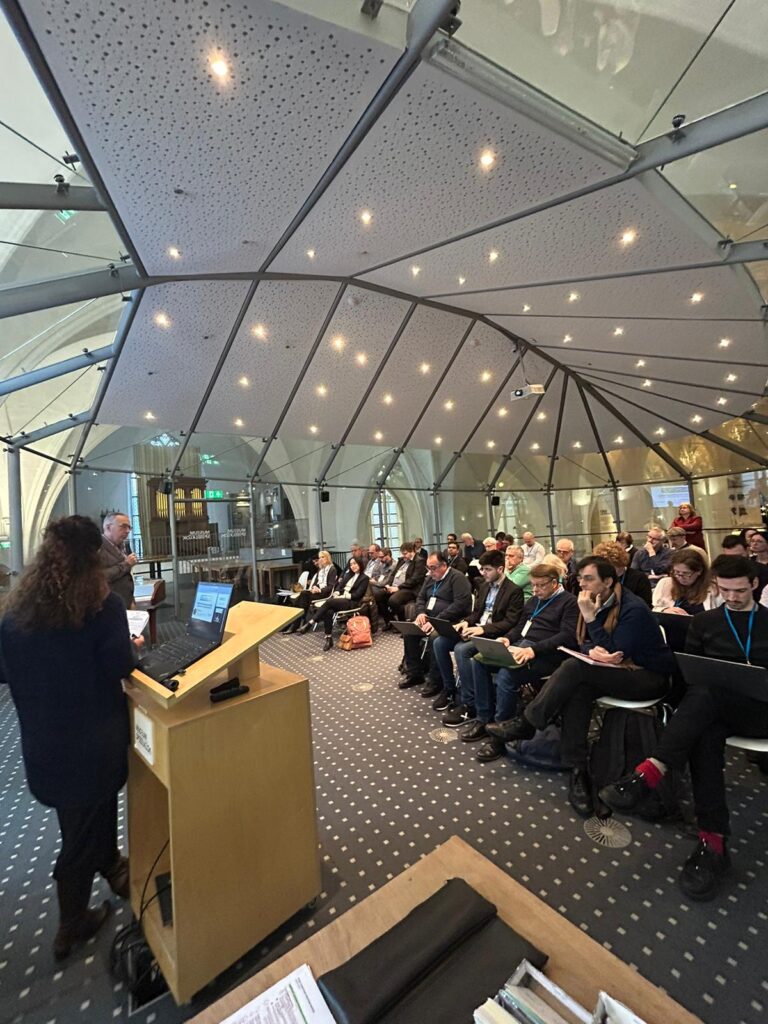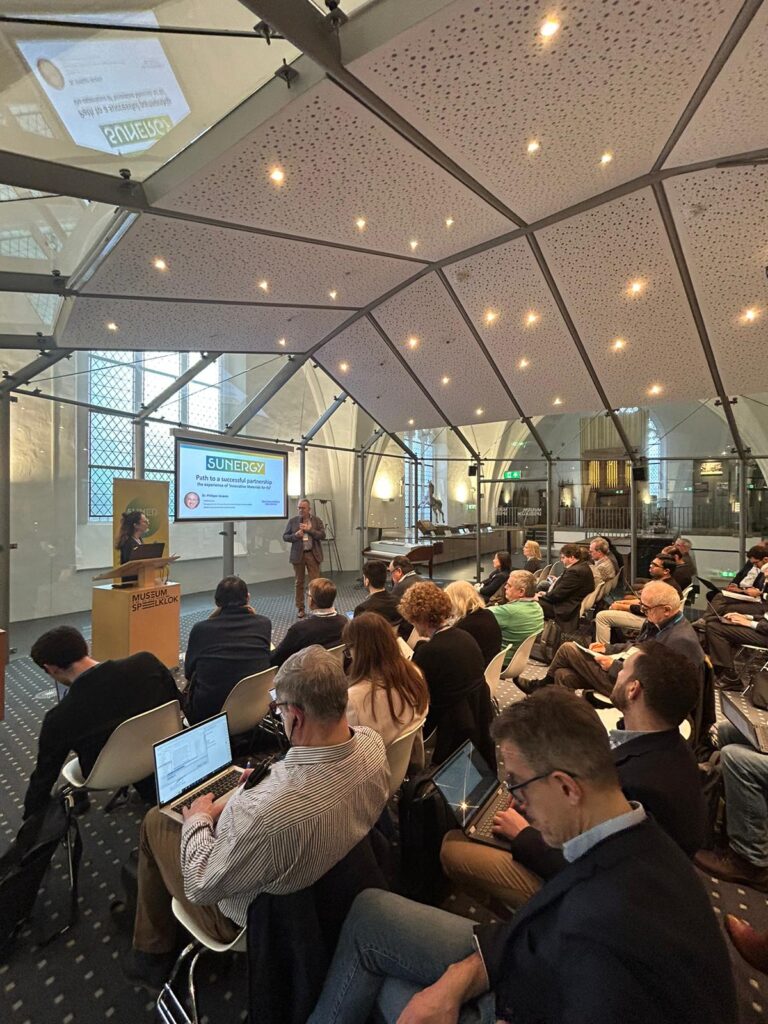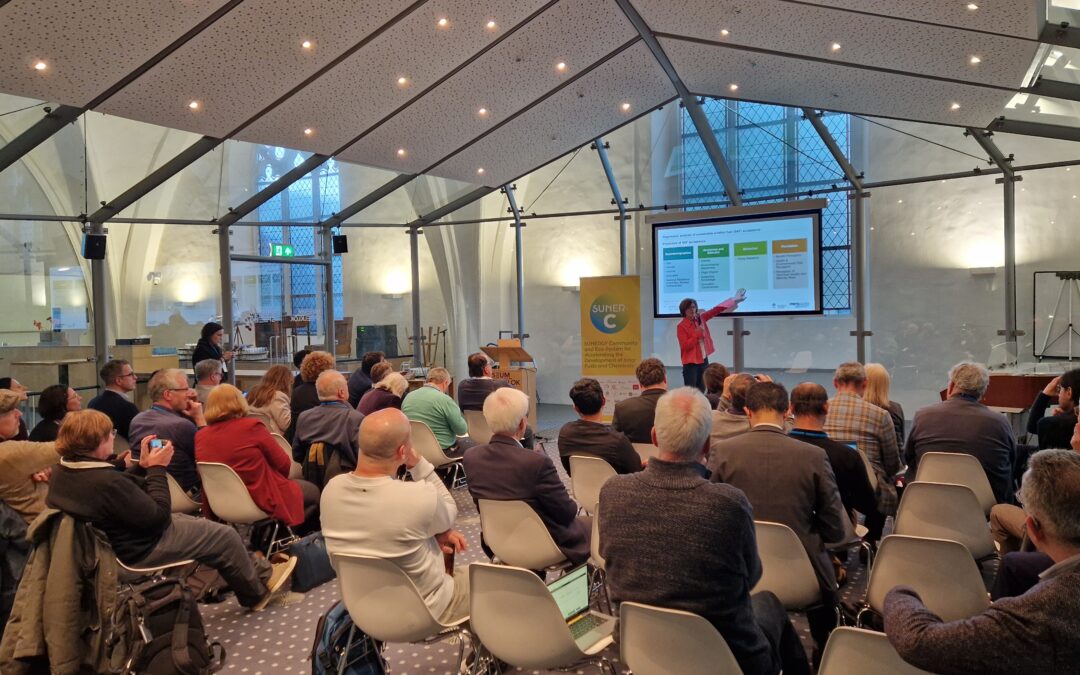On the 7th and 8th of March 2024, our 4th SUNER-C Consortium Meeting took place in Utrecht, gathering over 50 participants representing the partner organizations of the project. The attendees engaged in discussions, shared insights, and collectively contributed to shaping the trajectory of the SUNER-C project.
The first day began with a warm welcome from the SUNER-C Coordinator and Professor, Bert Weckhuysen, at the Speelklok Museum. Following that, Nathan Coutard, SUNER-C Project Manager, presented some context around a funding opportunity: the EIC Solar-to-X Pathfinder Challenge. The first part of the meeting ended with the WP updates and preparing for working sessions of day 2.
SUNER-C partners had the privilege to host Philippe Jacques (EMIRI/Syensqo), Managing Director of the Energy Materials Industrial Research Initiative (EMIRI) and SUNER-C International Advisory Board Member, sharing insights about the path to a successful partnership, and discussing the experience of the “Innovative Materials for EU” (proposed public-private partnership under Horizon Europe, starting in 2025).


During the presentation, Dr. Jacques shared insights into EMIRI’s journey towards a partnership, which began in 2012 with self-funded efforts. Key highlights included a Manifesto in 2021, signed by industry and RTOs, the involvement in the Batteries European Partnership Association and crucial support from the European Commission. He also emphasized as a key strategy for collective advancement the importance of industry-relevant KPIs for advocacy, having a clear positioning, creating a strong community engagement and continuously collaborating with other initiatives. In addition, Philippe Jacques emphasized that all this requires a long lasting effort – therefore, it’s key to build on SUNERGY work so far to develop the community further, towards a possible future partnership or another large scale initiative.
The day concluded with an enlightening presentation by Katrin Arning, Assistant Professor for Risk Perception and Communication at RWTH Aachen University and SUNER-C International Advisory Board Member, presenting “Sunlight and Shadows: Risk perception, acceptance, and communication of Sustainable Aviation Fuels”. Prof. Arning discussed societal acceptance, highlighting its different dimensions and the crucial role of understanding four key aspects of risk perception: subjectivity, interpersonal differences, complexity, and context specificity. To assess risk perception effectively, a comprehensive measurement framework involving both qualitative and quantitative methods is necessary. Shockingly, only a small percentage of respondents are aware of CCUS, leading to inadequate understanding and overestimation of risks among the public.
The second day took place at Utrecht University, with discussions focusing on the progress of specific project topics and planned future actions. SUNER-C partners also visited laboratories showcasing the research happening at Utrecht University.
The consortium meeting concluded with a conversation on societal and cross-cutting issues in sustainable fuels & chemicals technology groups, moderated and organized by Dr. Kasper Ampe (Ghent University), Prof. Dr. Joeri Wesseling (Utrecht University) and Tycho van Hauwaert (Flemish Environmental Movement). The panel included Joanna Kargul, Professor at Warsaw University (WU), Han Huynh, CCUS Domain Manager at ENGIE, Joachim John, Senior Project Manager at imec, Ann Magnuson, Professor at Uppsala University (UppU), and Martin Roeb, Scientist at the German Aerospace Center (DLR) and SUNER-C International Advisory Board Member.
The discussion focused on the (renewable) energy, critical raw materials and carbon required to produce sustainable fuels, the proposed technologies and their relation to the energy system, the place where sustainable fuels are produced, who gets to use sustainable fuels and who decides what when and how about sustainable fuels technology development.
We’re grateful for the engaging discussions, valuable insights, and collaborative spirit that marked the 4th SUNER-C Consortium Meeting. Looking forward to implementing the ideas and strategies discussed during the meeting as we continue to drive innovation in the field of sustainable fuels and chemicals.

